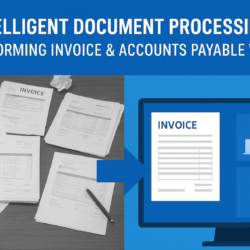Every modern small business depends on data. Whether it is customer records, invoices, marketing content, or product designs, everything a company does now has a digital foundation. But with that dependence comes a crucial question that every entrepreneur in the United States and Australia eventually faces. Is cloud backup safe for small businesses?
It is a fair concern. Business owners hear about cyberattacks, data leaks, and hacking stories in the news every week. It makes sense to hesitate before trusting someone else’s servers with your valuable data. But the truth is that cloud backup has become one of the safest, most reliable, and most cost-effective data protection tools for small and medium-sized enterprises today.
Let us explore why that is the case and what makes cloud backup not just safe, but essential for business continuity and long-term growth.
What Cloud Backup Really Means for a Small Business
At its core, cloud backup means copying your business data from your computers or local storage and keeping a secure version of it online in remote servers. These servers belong to professional cloud providers who specialize in data protection and storage infrastructure.
Unlike traditional backups that rely on local hard drives or USB devices, cloud backup is automated and continuous. It keeps updating your files as you work, ensuring that you always have the latest version safely stored.
This combination of automation and remote protection is what makes it a true game changer for small businesses.
Why Safety Is the Biggest Concern
When small business owners ask whether cloud backup is safe, what they are really asking is whether they can trust the technology to protect their most sensitive data. The question often comes from a mix of fear and past experience.
Many owners have faced situations where files were lost because of a broken hard drive or an accidental deletion. Others worry about hackers breaking into systems or data leaks caused by poor security.
Cloud providers now use technology that surpasses what most small companies could ever afford to set up themselves.
The Layers of Protection Inside Cloud Backup
The safety of cloud backup comes from its multiple layers of protection. Each layer addresses a different type of risk — from physical damage to cyber threats.
1. Encryption Keeps Data Locked from Prying Eyes
Encryption is the process of converting your data into code that cannot be read without a special key. When your files are uploaded to the cloud, they are encrypted before they leave your device. They travel through secure channels and stay encrypted even while stored on the provider’s servers.
Top cloud providers use AES 256-bit encryption, which is considered the gold standard for data protection and is used by banks and government agencies.
2. Data Centers Are Built Like Fortresses
Your backed-up data does not sit on a single computer in an office somewhere. It is stored in professional-grade data centers that are designed for security and reliability.
3. Redundancy Ensures Data Is Never Lost
Redundancy means multiple copies of your files exist simultaneously. If one server fails, another instantly takes over without any interruption. This system ensures high availability and prevents single points of failure.
4. Strict Access Controls Protect Privacy
Security is not just about where the data is stored but who can access it. Cloud backup platforms give small business owners full control over access permissions. You can assign roles, manage user rights, and limit which team members can view or edit specific files.
Most providers also use multi-factor authentication, which means users need both a password and a verification code to log in. This extra step significantly reduces the chance of unauthorized access.
How Cloud Backup Compares to Traditional Storage
Many small businesses still rely on physical drives or in-office servers to store backups. While that approach might feel secure because it is within reach, it actually introduces more risk.
Local backups can be stolen. Laptops and external drives are easy targets for theft. Once they are taken, whoever holds them has full access to your information.
Local backups can be destroyed. Fires, floods, or electrical failures can ruin physical storage devices. If your backup lives in the same building as your main system, you lose everything at once.
Local backups can fail silently. Hard drives wear out over time. You might not realize your backup has failed until you try to restore it.
Cloud backup avoids all of these problems. Your data is protected off-site, maintained by professionals, and constantly verified for integrity. For most small businesses, it is the difference between total data loss and instant recovery.
Compliance and Legal Protection
In both the United States and Australia, data protection laws are becoming stricter. Businesses that collect or store customer information are legally responsible for keeping that data secure.
Cloud backup services are built to comply with these regulations. Many providers follow international standards such as ISO 27001 and SOC 2, ensuring that their systems meet the highest data security requirements.
By using a compliant cloud provider, small businesses automatically strengthen their legal position. If a client or regulator ever asks how you protect their data, being able to show that it is encrypted, redundant, and professionally managed can make a strong impression.
Compliance is not just about avoiding penalties. It also builds credibility with customers who expect modern companies to take privacy seriously.
Real-Life Examples of Cloud Safety in Action
Consider a few real scenarios that illustrate why cloud backup has become the safest option for many small businesses.
Example One: A Café Chain in California
A small café business used cloud backup for its accounting and payroll systems. When their office computer crashed, they restored all their files in less than an hour. Without the backup, weeks of records would have been lost.
Example Two: A Design Agency in Sydney
During a severe storm, a lightning strike damaged the main office network. Their cloud-based storage kept all projects safe. The team resumed work remotely the next day using laptops from home.
Example Three: A Law Firm in Texas
An employee accidentally deleted an important client folder. Thanks to version control built into their cloud backup, they recovered the entire directory within minutes.
These stories are common across industries. Cloud backup not only prevents disasters from becoming business-ending events but also improves operational resilience.
Debunking Common Myths About Cloud Security
Despite the evidence, some myths about cloud safety still circulate. Let us address a few of them clearly.
Myth One: The Cloud Is Easy to Hack
Top cloud providers invest millions of dollars annually in cybersecurity. They use advanced firewalls, intrusion detection systems, and dedicated security teams. It is far more difficult for hackers to breach these systems than to attack small local networks.
Myth Two: You Lose Control Over Your Data
You always retain full ownership of your data. Providers store and protect it on your behalf but cannot access it without your permission.
Myth Three: Cloud Providers Can See My Files
All data is encrypted. Providers manage the servers but cannot read your information. The encryption keys remain in your control.
Myth Four: Cloud Backup Is Only for Big Companies
Modern cloud backup solutions are built for scalability. Small businesses can start with affordable plans and expand as they grow. There is no need for large investments or IT staff.
Myth Five: Internet Outages Make It Useless
Even if your internet goes down temporarily, your local system still works. Once the connection returns, your backup automatically updates. You never lose access permanently.
These myths persist mostly because of outdated experiences or misconceptions. In reality, cloud systems today are engineered for both safety and simplicity.
Practical Tips for Keeping Cloud Backup Even Safer
Although cloud providers offer strong security, businesses can take additional steps to maximize protection.
- Choose a Trusted Provider
Select a company with a proven record of reliability, clear privacy policies, and transparent data management practices. - Use Strong Passwords and Authentication
Avoid weak or reused passwords. Enable multi-factor authentication for all accounts. - Limit Access Based on Roles
Give employees only the access they need. Review permissions regularly and remove inactive users. - Monitor Account Activity
Many providers allow you to track logins and data changes. Regular monitoring helps detect suspicious behavior early. - Train Your Staff
Human error is often the weakest link. Teach employees to recognize phishing attempts and handle data responsibly. - Test Your Recovery Process
Do not wait for an emergency to test whether your backup works. Schedule regular drills to ensure quick restoration.
By combining these best practices with the built-in security of cloud backup, you create a highly resilient system.
The Economic and Psychological Value of Safety
Beyond technical protection, there is also the mental comfort that cloud backup provides. Business owners often carry the stress of what might happen if a system fails or if important files disappear. Knowing that every document, transaction, and customer record is safely backed up brings peace of mind.
That peace of mind has real economic value. It lets you focus on strategy, growth, and customer service instead of worrying about potential data loss. It makes your business more agile and confident in dealing with unexpected challenges.
The Global Relevance for US and Australian Businesses
Both the United States and Australia have strong small business communities that rely heavily on digital operations. Whether it is a retail shop in Dallas or a marketing agency in Melbourne, both face similar risks — cyberattacks, natural disasters, and technical failures.
Cloud backup levels the playing field. It gives smaller organizations access to the same level of data protection that large corporations enjoy. It also supports remote work, which has become an essential part of the modern business landscape in both countries.
By adopting cloud backup, small businesses in these markets position themselves for resilience and credibility in an increasingly digital economy.
Looking Toward the Future of Cloud Safety
The future of cloud security is even more promising. Artificial intelligence and machine learning are being integrated into backup systems to detect threats automatically, predict failures, and respond faster.
As regulations tighten and customer awareness grows, cloud providers continue to enhance transparency and accountability. This ensures that businesses of all sizes can trust the systems that store their most important information.
For small business owners, the challenge is no longer whether cloud backup is safe. The real challenge is choosing the right provider and adopting best practices to make the most of it.
Final Thoughts
So, is cloud backup safe for small businesses? The answer is yes, absolutely. In fact, it is one of the safest, smartest, and most cost-effective ways to protect your company’s data today.
Cloud backup combines encryption, redundancy, secure data centers, and access control to create a protective shield that local systems cannot match. It meets strict compliance standards, prevents downtime, and restores operations quickly after any disruption.
For small businesses in the United States and Australia, this means more than just data safety. It means stability, customer confidence, and freedom from the constant fear of data loss.
The real risk is not using cloud backup. The real danger is relying on outdated methods that cannot withstand modern challenges.
Your data is the heart of your business. Cloud backup keeps that heart beating no matter what happens. It turns uncertainty into assurance and gives your company the strength to grow in a connected, competitive world.




